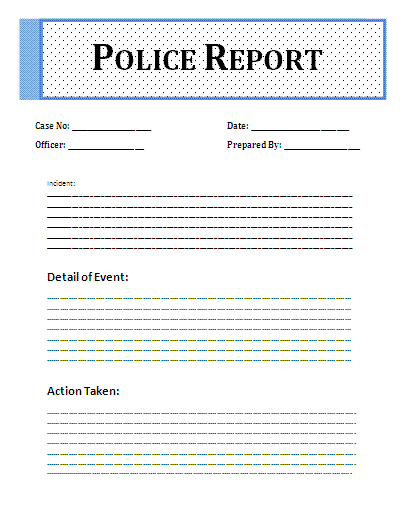The comparison between aliases and nicknames unveils a complex interplay of identity, purpose, and human connections. While often used interchangeably, these terms bear subtle yet significant distinctions. An alias embodies the idea of concealing one’s identity, frequently employed for online security or personal privacy. On the other hand, nicknames flourish in the realm of relationships, reflecting familiarity and affection among individuals. This exploration of aliases and nicknames sheds light on how language, context, and intention shape our understanding of identity in both digital spaces and personal interactions.
Is An Alias A Nickname?
Yes, an alias can be considered a nickname. An alias is a name that someone uses other than their legal or given name. It can be used for various purposes, such as online usernames, pseudonyms in literature, stage names for performers, or even for security and privacy reasons. Just like a nickname, an alias is an alternative name that individuals adopt to represent themselves in different contexts. While an alias can encompass a broader range of uses beyond just being a casual nickname, at its core, it serves a similar purpose of identifying someone with a name other than their birth name.
Alias vs Nickname: Difference Between Alias and Nickname
1. Purpose and Usage :
An alias and a nickname are terms often used interchangeably, but they carry distinct purposes and usages. An alias is typically a fictitious or alternative name used to conceal one’s true identity. It’s commonly employed for privacy or security reasons, particularly in online spaces. People might use aliases in online gaming, forums, or even professional platforms to maintain anonymity. On the other hand, a nickname is a familiar, informal name given to an individual, usually by friends, family, or colleagues. Nicknames are often reflective of certain traits, behaviors, or experiences related to the person, and they create a sense of familiarity and camaraderie.
Alias:
An alias serves as a protective barrier between an individual’s real identity and their online persona. This is particularly relevant in situations where privacy or security is a concern. For example, activists or individuals sharing controversial opinions might adopt an alias to avoid potential backlash or personal risks. Additionally, artists or writers might use pseudonyms to publish works that differ from their primary genre.
Nickname:
Nicknames, on the other hand, are more about fostering connections and relationships. They’re given based on personal characteristics, appearances, habits, or even shared experiences. Friends often create nicknames as terms of endearment, and these names can carry emotional significance that reinforces social bonds. Nicknames can also stem from a person’s real name, making them easier to remember and reinforcing the sense of belonging.
2. Anonymity vs Affection:
One of the primary distinctions between aliases and nicknames lies in the emotions and intentions they evoke. Aliases lean towards anonymity and protection, while nicknames emphasize familiarity and affection.
Alias:
The use of an alias typically aims to dissociate an individual from their real identity. This dissociation provides a level of anonymity, allowing someone to engage in online activities without revealing personal details. This is especially relevant in digital environments where privacy concerns are paramount. People might use aliases to express opinions freely without fear of personal repercussions or harassment.
Nickname:
Nicknames, in contrast, create a sense of closeness and camaraderie. They’re often used within personal circles and carry emotional weight. Nicknames can encapsulate shared memories, inside jokes, or unique attributes of a person. By using a nickname, individuals show that they are part of a specific group or relationship, reinforcing the bonds between them.
3. Authenticity vs Alter Ego:
While both aliases and nicknames involve alternate names, they serve different purposes in terms of authenticity and self-expression.
Alias:
Aliases are often used as a means of creating a temporary or permanent alternate identity. In cases where revealing one’s real identity might lead to negative consequences, using an alias provides a layer of protection. This doesn’t necessarily mean that the alias isn’t authentic; it’s just a facet of the individual’s identity that they choose to emphasize in certain contexts.
Nickname:
Nicknames are tied to an individual’s genuine identity and are typically used in more personal or informal settings. They reflect aspects of a person’s character, physical traits, or shared experiences. Unlike aliases, nicknames don’t seek to conceal identity but rather celebrate and reinforce certain qualities that make the person unique.
4. Context and Application:
Aliases and nicknames are used in different contexts and have varying applications based on the situation.
Alias:
Aliases are often used in situations where anonymity is essential. This can include online interactions, online gaming, hacking communities, or even certain professions like investigative journalism. In these scenarios, the alias serves as a protective barrier, allowing individuals to express themselves or engage in activities without the burden of their real identity.
Nickname:
Nicknames are primarily used within personal relationships and social groups. They’re a testament to the familiarity and shared experiences among friends, family, or colleagues. Nicknames are rarely used in professional contexts and are generally limited to casual environments where individuals are comfortable with revealing aspects of their personalities.
5. Evolution and Flexibility:
Aliases and nicknames can both change over time, but the reasons for change and the extent of flexibility differ.
Alias:
Aliases can change due to evolving personal circumstances or changing online personas. Individuals might switch aliases to maintain privacy or after a particular alias becomes associated with certain actions or content. This change is often strategic, meant to adapt to shifting contexts and protect the person behind the alias.
Nickname:
Nicknames tend to evolve organically and reflect changes in the individual’s life or personality. They might be based on childhood traits that are no longer relevant, and new nicknames can emerge to reflect current circumstances or characteristics. Unlike aliases, nickname changes are less about privacy and more about the natural development of relationships and personal growth.
RELATED:
Can Someone’s Legal Name Be All Lowercase
In conclusion, while both aliases and nicknames involve the use of alternate names, they serve distinct purposes and evoke different emotions. Aliases focus on anonymity, protection, and alternate identities in online or specific contexts, while nicknames foster familiarity, affection, and bonding within personal relationships. Understanding the differences between these two terms can provide insight into the role of identity and connection in various aspects of our lives.
Last updated on: April 26, 2024




